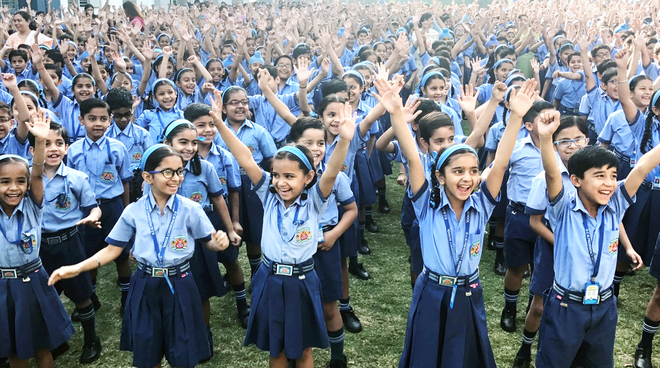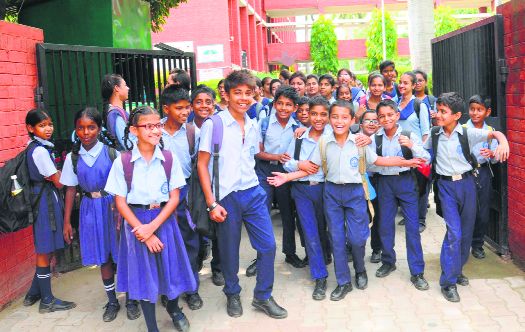 Bengaluru: The World’s Largest Lesson – an initiative led by Project Everyone and UNICEF – and NetApp a cloud-led, data-centric software company, recently announced the findings from one of the largest global surveys of education ever which garnered 37,000 responses from young people in 150+ countries including India, many sharing their views for the first time.
Bengaluru: The World’s Largest Lesson – an initiative led by Project Everyone and UNICEF – and NetApp a cloud-led, data-centric software company, recently announced the findings from one of the largest global surveys of education ever which garnered 37,000 responses from young people in 150+ countries including India, many sharing their views for the first time.
The gamified survey aimed to understand the student sentiments towards modernising education.
When students were asked what they believe the purpose of school should be, 48 per cent of responses related to gaining practical skills for the real world.
“Students are imagining a future that is very different from the one their current curriculums were developed for. They want to be ready to thrive in new, green economies and to help build a sustainable world,” says Alison Bellwood, Executive Director of World’s Largest Lesson.
 The good news is that 77 per cent of students are happy to be back at school after COVID-19, and they have shared thousands of ideas about what they want to see changed in education.
The good news is that 77 per cent of students are happy to be back at school after COVID-19, and they have shared thousands of ideas about what they want to see changed in education.
When asked whether they were learning enough about a range of topics, 61 per cent of students worldwide said they feel they are learning not enough or not at all about digital skills like programming and coding. Around 5000 students from India were interviewed – constituting the second-largest respondent group. Nearly 50 per cent said that they are learning a key range of digital skills.
A close second with almost 59 per cent global students called for financial literacy or how to make a budget with 55 per cent wanting to understand how to analyse and use data.
“Working with data enables critical thinking and encourages young minds to ask questions founded on data. The world today can greatly benefit from objective thinking, and we want to encourage youngsters to develop this skill to help them thrive in an increasingly data-driven world,” said Ravi Chhabria, Managing Director, NetApp India. “Today, data has increasingly become the foundation for making informed decisions, and we are committed to empowering students to use this to drive positive change in the world,” he added.
To address the need for data science learning experiences, NetApp created a global social impact programme – Data Explorers. It is a hands-on afterschool programme focusing on reaching under-represented students from under-resourced communities.
While being prepared for jobs and the future were top of mind, a further 44 per cent wanted to learn more about how to look after their mental health and well-being, with 33 per cent reporting they feel anxious to be back at school after COVID-19. 42 per cent of students reported wanting to understand different cultures, and a further 42 per cent wanted to learn more about how to protect the planet.
When asked for ideas on how to improve education, the most common global theme was practical skills attainment, at 33 per cent and a further 21 per cent mentioned being more informed on key issues. Nearly 20 per cent talked about changing how they learn, for example, reducing pressure to succeed in exams or allowing students more individual choice.
While we have heard calls to modernise education before, this survey has allowed children themselves to express their thoughts. Together they have shared more than 25,000 ideas of their own to transform education from study in nature to being able to experiment and experience life learning lessons.
Methodology
· The survey ran publicly from 16th August 2022 until 24th January 2023, International Day of Education.
· The survey was completed by more than 37,000 students in 150 countries.
· The survey was gamified, available online and offline for those without internet access.
· The survey was available in English, French, Spanish, Urdu, Arabic, Hindi, Russian, Portuguese and Korean. It was completely anonymous.
· The survey received equal representation in responses from children in the Global South and the Global North.
· The top 5 countries with the highest number of responses were; India, Nigeria, USA, UK, and Mexico.

